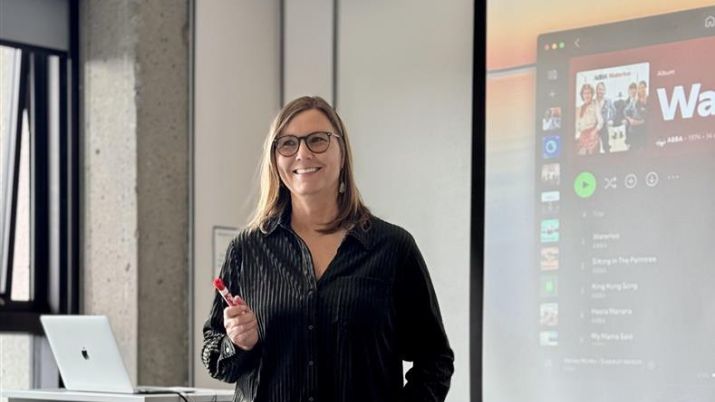Pippa Rogak is fascinated by languages both ancient and modern, and graduated this May from the University of British Columbia with a major in Religious Studies (Ancient Mediterranean and Near Eastern Studies) and a minor in German. They are passionate about the intersections between language and translation, web-based research, and information accessibility. Outside of the classroom, they enjoy celebrating genderqueer storytelling through visual art, makeup, and Dungeons & Dragons.


Pippa Rogak: Eichhörnchen. It’s just so cute!
CENES: Why did you take the German Minor?
PR: I used to speak German when I was very little, but I forgot it all as I got older. I took German 100 and 110 in my first year at UBC to try to learn it again, then 200 and 210 in second year… and so on. I started taking German courses, and I got hooked and just never stopped.
CENES: What is your favourite thing that you studied in the German program?
PR: Compound words. German is famous for long compound words, and honestly, learning how compounds work in German was the single most useful thing for increasing my vocabulary and comprehension in one fell swoop.
CENES: What is something you learned in German that will stay with you even after you graduate?
PR: I use my multilingualism in ways that I would never have expected and in all kinds of contexts outside the classroom. There are moments when, because I speak German, I can understand the meaning or etymology of an English or French word (or even a word in a language that I don’t speak). It has also opened up so many options for what books and articles I can read, how I can do research, or even just what YouTube videos and TV shows I can watch. Learning a new language has expanded my access to media and to new understandings far beyond what we did in class.
CENES: What will you miss most about the German program?
PR: The view out the window of Buchanan Tower, Room 997.
CENES: What would you say to anyone considering a major/minor in German?
PR: The German Department is much bigger than just the core 100/200/300/400 German language courses. There are tons of interesting language, literature, culture, and history courses in the CENES Department. I took GERM 360 in my last year (Middle Ages and Renaissance literature in German), and I didn’t expect that it would be my cup of tea because I don’t love poetry, but it ended up being a very fun course and really helped me improve my reading and writing skills in German. Many of the GERM courses are taught in English, too, so you can take them even if you aren’t fluent or can invite your non-German-speaking friends to come take them as electives with you. Branch out and take advantage of all the amazing GERM/CENES courses!


